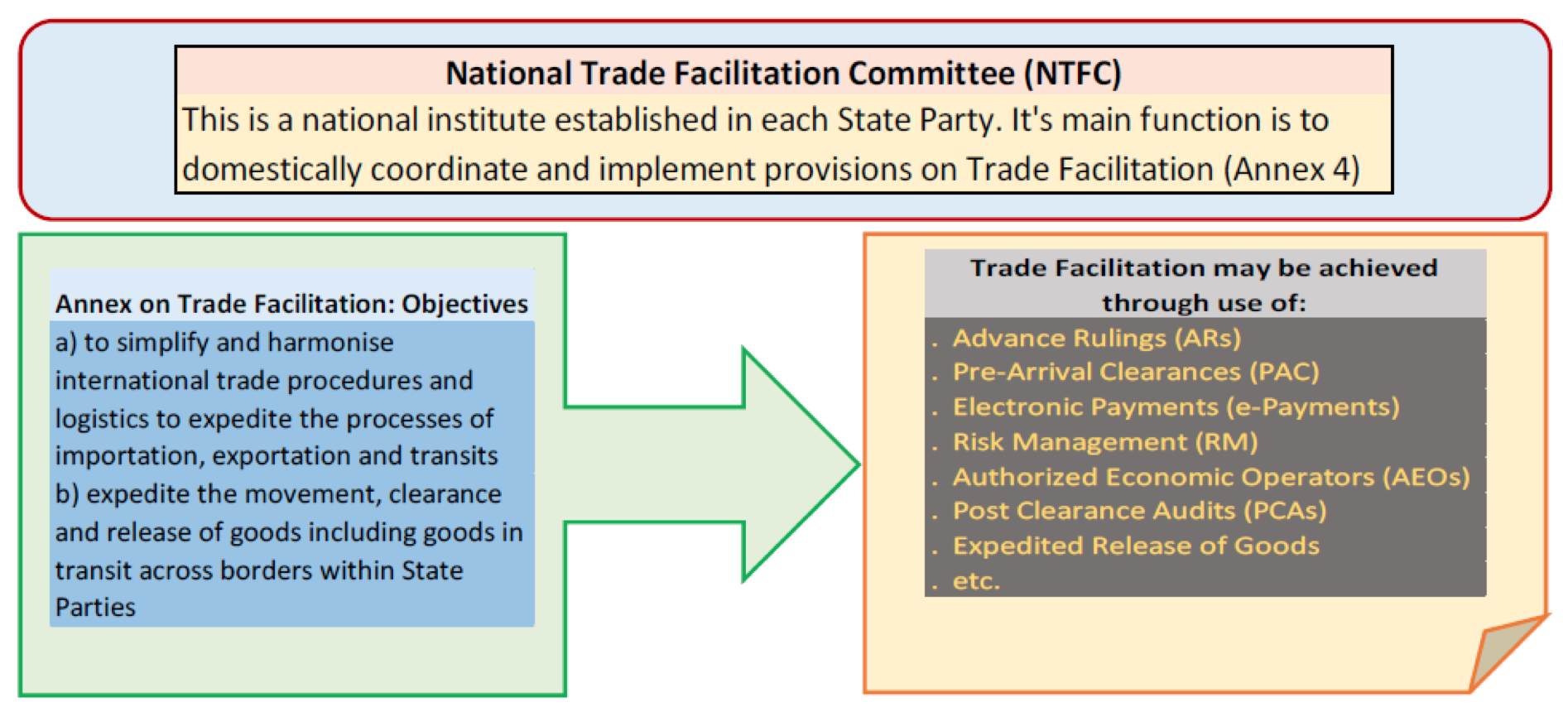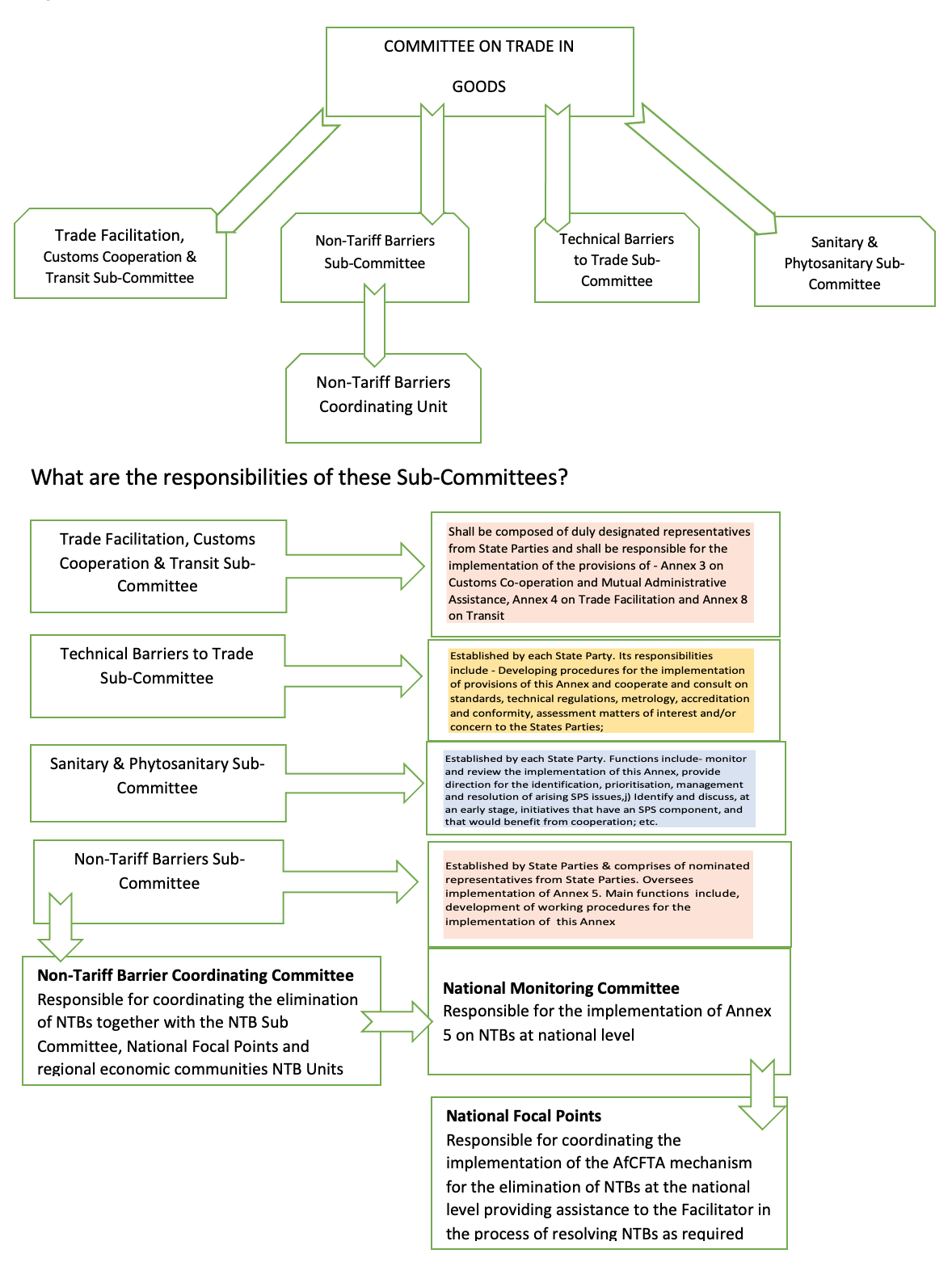Blog
Trade Facilitation and institutional arrangements under the African Continental Free Trade Agreement

Various technical committees are established by the African Continental Free Trade Agreement (AfCFTA), to assist with the implementation of its Protocols and the respective Annexes to the Agreement. These committees are made up of designated representatives from State Parties. This Blog looks at Trade Facilitation under AfCFTA, and examines the institutional architecture established under the Protocol on Trade in Goods. Trade Facilitation is the simplification and harmonisation of international trade procedures, including activities, practices, and formalities involved in collecting, presenting, communicating, and processing data required for the movement of goods in international trade (Article 1(f) of Annex 4, Protocol on Trade in Goods)
Trade Facilitation has immense potential for enhancing intra-African trade, among other benefits. Improvements in customs and border management, for example, will also have a broader multiplier effect, by improving border management processes, irrespective of the trade partner. On the whole, the institution responsible for the operationalization and furtherance of the objectives under the Protocol on Trade in Goods is the Committee for Trade in Goods. This Committee is established by the Council of Ministers (CoMs). The Committee for Trade in Goods undertakes all the duties as assigned by the CoMs in so far as facilitating the implementation of the Protocol. It may also establish such subsidiary bodies as it may deem necessary in the interest of discharging its functions. Each State Party shall establish and/or maintain a National Committee on Trade Facilitation (NTFC) or designate an existing mechanism to facilitate both domestic coordination and implementation of the provisions of this Annex.
Figure 1: NTFC, objectives of Annex 4 and some of the provided Trade Facilitation Strategies

Which institutions (Sub-Committees) are established to play a role in Trade Facilitation under AfCFTA?
Annex 4 specifically covers African Union’s Trade Facilitation under the Protocol on Trade in Goods. Notably, the Protocol has three other annexes relevant to Trade Facilitation and these are: Annex 3 on Customs Cooperation and Mutual Administrative Assistance (CC&MAA), Annex 5 on Non-tariff barriers to trade (NTB), and Annex 6 on Technical barriers to trade (TBT). Figure 2 below shows all the AfCFTA Trade Facilitation institutional or sub-committee arrangements
Figure 2: Trade Facilitation related institutions/sub-committees under AfCFTA

About the Author(s)
Leave a comment
The Trade Law Centre (tralac) encourages relevant, topic-related discussion and intelligent debate. By posting comments on our website, you’ll be contributing to ongoing conversations about important trade-related issues for African countries. Before submitting your comment, please take note of our comments policy.
Read more...





